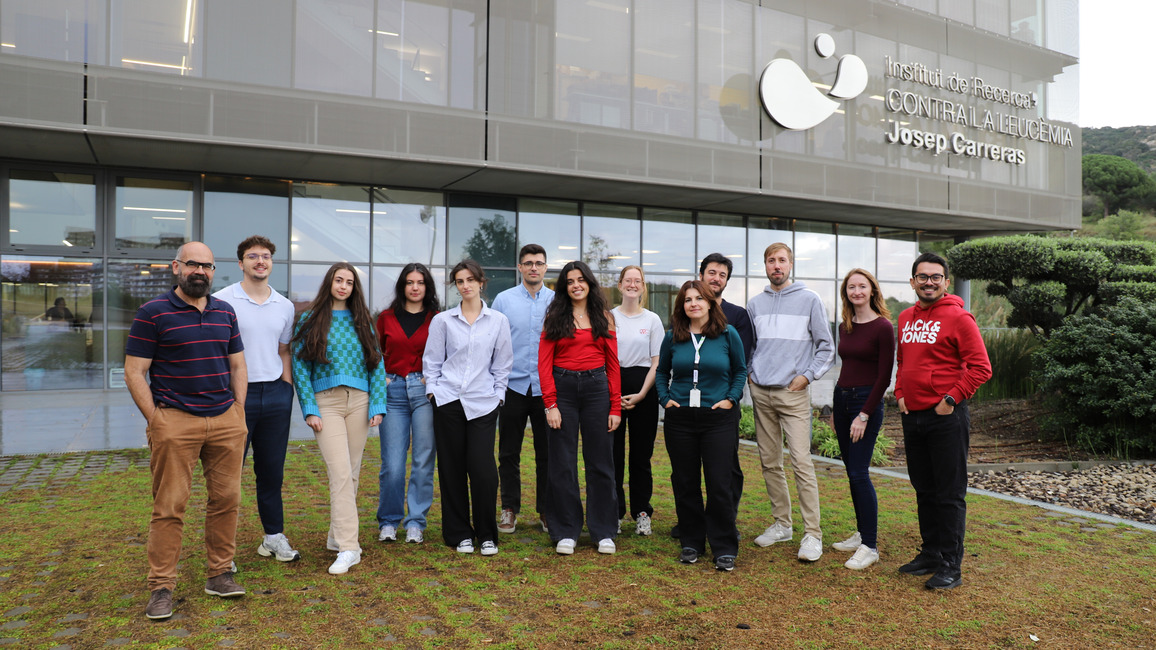SARS-CoV-2 Infection helps understand the altered immune response in patients with Primary Immunodeficiency
Researchers from the Epigenetics and Immune Disease laboratory at the Josep Carreras Leukaemia Research Institute have published a study that sheds new light on how COVID-19 impacts individuals with common variable immunodeficiency (CVID), the most prevalent primary immunodeficiency. Researchers have identified persistent immune alterations in CVID patients after recovering from SARS-CoV-2 infection and suggest how to improve their treatment during long-lasting viral infections.

The immune system responds to viral infections in two ways. First, by selecting and amplifying cells producing specific antibodies (B-cells), named the humoral response, and, secondly, by activating a set of immune killer cells (T-cells, monocytes and other), called the cellular response. In most healthy individuals, the combination of both responses is enough to successfully eliminate the virus in some days, on most occasions.
People with Common Variable Immunodeficiency (CVID), the most frequent inborn malfunction of the immune system, show a reduced capacity to produce antibodies - the humoral response - and are highly vulnerable to infections. Indeed, CVID patients take longer to clear viral particles from their body, resulting in a longer immune activation and prolonged inflammation.
While it is known that CVID patients cannot build a proper immune response, the details of how much dysregulated their response is, especially during long-lasting viral infections, had been elusive. In 2020, the COVID-19 pandemic impacted the world with a virus able to produce hyperinflammatory responses in some individuals and sustained infections, a challenging situation for CVID patients but also an opportunity to understand the disease better.
A research team led by Dr. Esteban Ballestar from the Josep Carreras Leukaemia Research Institute, in collaboration with the teams of Dr. Roser Vento-Tormo, at the Wellcome Sanger Institute, and Dr. Klaus Warnatz, at the University of Freiburg, used advanced single-cell RNA sequencing and spectral flow cytometry to analyse peripheral blood samples from CVID patients before, during, and after COVID-19 infection.
The findings, published recently at the top scientific journal Nature Communications, reveal persistent immune dysregulation in CVID patients even after recovering from COVID-19. In greater detail, they highlight a prolonged type I interferon signature across immune compartments and inflammasome activation at convalescence, suggesting unique immune challenges for CVID patients.
Dr. Javier Rodriguez-Ubreva, lead author, recalls that "the COVID-19 pandemic presented a unique opportunity to explore how prolonged viral infections affect individuals with CVID. Our findings highlight the need for tailored interventions to address immune dysregulation and prevent complications in this vulnerable population."
The main conclusion of the study underscores the importance of early intervention strategies for CVID patients facing viral infections like COVID-19. The persistent immune alterations identified suggest that existing therapies, such as immunoglobulin replacement, could be enhanced to address specific immune dysfunctions.
Dr. Esteban Ballestar, senior author of the study, is confident that "by pinpointing these immune alterations, we can better understand the mechanisms driving prolonged immune dysregulation. This paves the way for targeted treatments that could improve outcomes for CVID patients during future pandemics or other viral outbreaks."
This research has received funding from “la Caixa” Foundation and the Wellcome Trust. This publication is part of the Human Cell Atlas (www.humancellatlas.org/publications). No generative AI tools have been used in the production of this manuscript. A previous related study is available at https://www.nature.com/articles/s41467-022-29450-x.
Reference Article: Javier Rodríguez-Ubreva, Josep Calafell-Segura, Celia L Calvillo et al. (2024). COVID-19 progression and convalescence in common variable immunodeficiency patients show dysregulated adaptive immune responses and persistent type I interferon and inflammasome activation. Nature Communications. https://www.nature.com/articles/s41467-024-54732-x